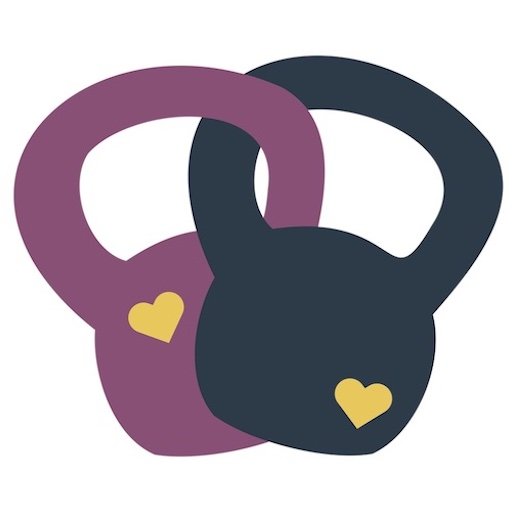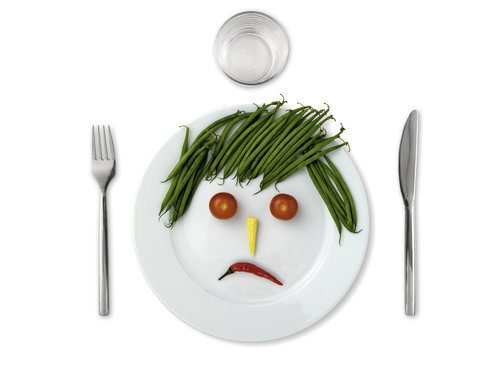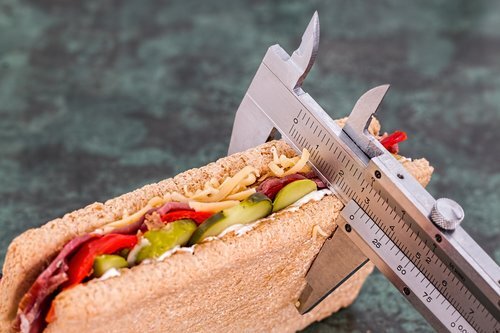5 REASONS WHY DIETS DON’T WORK FOR WEIGHT LOSS
DISCLAIMER: THIS IS NOT MEDICAL OR PERSONALIZED NUTRITION ADVICE, BUT GENERAL EDUCATION. DISCUSS YOUR OWN NUTRITION NEEDS WITH YOUR HEALTHCARE PROVIDER OR QUALIFIED NUTRITIONIST.
THIS DISCUSSION DOES NOT INCLUDE MEDICALLY-NECESSARY DIETS FOR SPECIFIC HEALTH CONDITIONS.
So, you feel like you need a change.
What you’re doing now isn’t working for you and you feel uncomfortable in your body. Maybe you feel tired and sluggish, or bloated, or your PMS is off the charts. Or maybe you feel fine but would like to lose weight. And I’ll be the first to tell you, food can help you feel better! If you eat in a way that supports your body, you’ll have more energy, the bloat will stop, and you’ll be surprised how you don’t really get PMS anymore. When you eat the right amount of nourishing foods, you'll naturally shift toward a weight that is right for you.
But…
AND THIS IS A BIG ONE!
You don’t need to go on a diet for any of that to happen. In fact, dieting can make your symptoms worse, and it can cause you to gain more weight! Here’s a short list of reasons why diets don’t work for weight loss (and might not help your other symptoms, either).
1) DIETS DON’T LAST FOREVER.
You’ll quit at some point. Either the nutrient intake prescribed by the diet is too low, or the elimination of a food group or macronutrient requires too much willpower to be sustainable. So what happens then?
When you’ve been eating too little on your diet (less than your basal metabolic rate, or even a “safe” drop in calories from your normal food consumption), your body perceives this as starvation. And your body is very smart! It knows that the best way to prevent starvation is to eat a lot of food, and it will attempt to do that by making food much more appealing that it is normally.
You’ll feel compelled to eat even when you’re not hungry, or you’ll be hungry all the time, or you won’t be able to feel full even when you eat all the time. These are common signs that your body is trying to reset from a phase of restriction. If this is happening to you right now, don’t hate on your body! It’s trying to take care of you!
If you eat plenty of calories but eliminate a food group or macronutrient (carbs for example), the internal mechanisms are different but the results are often the same. Once your willpower is exhausted (which doesn’t take much if you’re stressed!), you’ll probably eat whatever you can get your hands on if you’re hungry.
The result? Weight regain. And sometimes, (more often than not), you gain more weight than you lost.
2) DIETS CAN’T ASSESS YOUR BODY’S UNIQUE NEEDS.
What if you feel really good eating whole grains, but you’re on the Paleo diet? Or you don’t feel well eating avocado? Or your past experience with poorly cooked chicken made you never want to eat it again? A diet you found on the internet doesn’t know what your body needs.
Food is so much more than nutrition, but diets don’t know that. Macro counters can’t tell you what foods make you feel alive, the Keto diet won’t forgive you for having a brownie with a long-lost friend, and going vegan might not work for you if your gut doesn’t absorb iron efficiently.
And just because a celebrity does it and looks thin doesn’t mean you’ll look thin if you eat like her. Your genetics are different than anyone else’s, and foods that work best for your body and mind are a unique combination as well. If you’re going to lose weight in a safe, sustainable way, dieting isn’t the answer.
And this includes “a lifestyle” and any other code word for a method by which you are told you will lose weight. If it looks like a diet and sounds like a diet, it’s a diet. Get this: you can add all those amazing superfoods and blood sugar balancing foods and gut healing foods into your meals without being on a diet!
3) DIETS CAUSE YOU TO CRAVE THE FOOD/FOOD GROUP YOU’RE RESTRICTING MORE THAN YOU WOULD OTHERWISE.
True story. Over time, people who restrict don’t eat fewer calories than people who don’t…they tend to weigh more. Don’t believe me? This review of studies that were biased towards proving diets work for weight loss showed that one-third to two-thirds of people who diet regain more weight than they lost! And for those that did maintain weight loss…well, the results are not impressive. About 5 years after the diets, sustained weight loss totaled 4-12 pounds. That’s it. Some of these people lost 40-50 pounds on the diet, and regained all but a small fraction of it.
You’ve probably experienced this. Think about the last time you swore to never eat sugar/chocolate/butter/carbs again. Did you feel a sudden compulsion to eat a “last meal” with lots of that food/nutrient as a funeral to your old ways? How many days did you last before you gave in? Did you succeed in never eating it again?
I bet not. And you shouldn’t feel guilty about that…your body is protecting you!
4) DIETS DON’T TEACH YOU HOW TO EAT.
You’ve got a list: good, approved, compliant, legal, or whatever term is used to help you feel morally better about eating the foods on the list. You’ve got another list: bad, “to avoid,” non-compliant, etc. to describe the foods you “can’t” eat.
What what happens when you’re in a unique situation where you’re hungry and there’s nothing on your list to eat? You have to follow the rules. You’re either “on” or “off” the wagon. So…do you skip a meal? Feel dizzy? Avoid interacting with people for fear of eating what they’re eating? Miss out on your kid’s birthday cake? Avoid trying new recipes that have one ingredient you “can’t” have? Maybe you do, and it’s not fun. Or maybe you decide to ditch the diet “just this once,” which triggers guilt and disordered reactions such as excessive exercise, binging, or fasting.
And this is my favorite part: after you “slip up,” how do you go back? Some people “get back on” easily, but most feel derailed and will wallow for a few days or a week before attempting to try again. In the meantime, you’re stuck in limbo and eating whatever you feel like eating, and you feel terrible. Not cool.
Or what if you plan to go on the diet just until you lose weight? Do you think that your weight loss will be permanent if you go back to what you were eating before the diet? If not, what’s your plan? A maintenance diet? The same level of rigidity, but with more calories?
This is not how eating is supposed to be! Eating should be as easy as breathing, because it’s just as necessary. We’ve turned it into something so regulated that we can’t enjoy it. If you’re eating in a way that works for your body, it may require planning and work, but it shouldn’t cause you anxiety or guilt. Guess what causes anxiety and guilt? Diets.
5) DIETS FOR WEIGHT LOSS DON’T ADDRESS THE ROOT CAUSE OF YOUR SUFFERING.
This is a big one to unpack, and really should be its own blog post (or series!).
The essence of it is this: if you were magically smaller tomorrow, would you suddenly feel better? Would you have confidence, glide effortlessly through life, stop hating your body, and enjoy food? As someone who has lost a significant amount of weight, I can tell you that it doesn’t work like that. Your feelings about yourself will vary over your lifetime, regardless of your size.
So step back and assess: why do you feel so negative about food? Or about your body? Improve your understanding of the situation, which may prompt healthy food choices. If you force yourself to eat food you hate because you hate your body, your mental health will suffer. If your mental health suffers (especially anxiety and depression), you are more likely to gain weight.
“But I keep gaining weight and I want it to stop!” you say. Ok, then consider that food isn’t the only thing causing you to gain weight. Sleep deprivation, high cortisol, high insulin, and chronic stress are predictive of future weight gain and food cravings. Work on those things in addition to eating nourishing food that makes you feel good.
I know this is a lot to process. I get it…I was in denial for a long time about this. But the science is there, and it’s been replicated, and it’s not even new. Unfortunately, it can take decades for the medical community to catch up, which is why diets are still prescribed for weight loss and restricted eating (which in smaller bodies would be considered disordered) is applauded. If you’re interested in this topic, I have much more to say about it in future blogs. In the meantime, check out Linda Bacon’s work for more data. If you want to work on your relationship with food, I highly recommend using the Intuitive Eating workbook.
TO CHALLENGING OUR BELIEFS WITH SCIENCE,
~ Sarah
References:
Burger, K. & Stice, E. (2010). Relation of Dietary Restraint Scores to Activation of Reward-Related Brain Regions in Response to Food Intake, Anticipated Intake, and Food Pictures. Neruoimage, 55 (1), 233-239.
Mann, T., Tomiyama, A. J., Westling, E., Lew, A.M., Samuels, B., & Chatman, J. (2007). Medicare's search for effective obesity treatments: diets are not the answer. America Psychologist, 62 (3), 220-233.
Chao, A. M., Jastreboff, A. M., White, M. A., Grilo, C. M., & Sinha, R. (2017). Stress, cortisol, and other appetite-related hormones: Prospective prediction of 6-month changes in food cravings and weight. Obesity (Silver Spring), 25 (4), 713-720.
Rihm, J. S. et al. (2019). Sleep Deprivation Selectively Upregulates an Amygdala-Hypothalamic Circuit Involved in Food Reward. Journal of Neuroscience, 39 (5), 888-899.
Stalano, A. E., Marker, A. M., Martin, C. K., & Katzmarzyk, P. T. (2016). Physical activity, mental health, and weight gain in a longitudinal observational cohort of nonobese young adults. Obesity (Silver Springs), 24 (9), 1969-1975.





